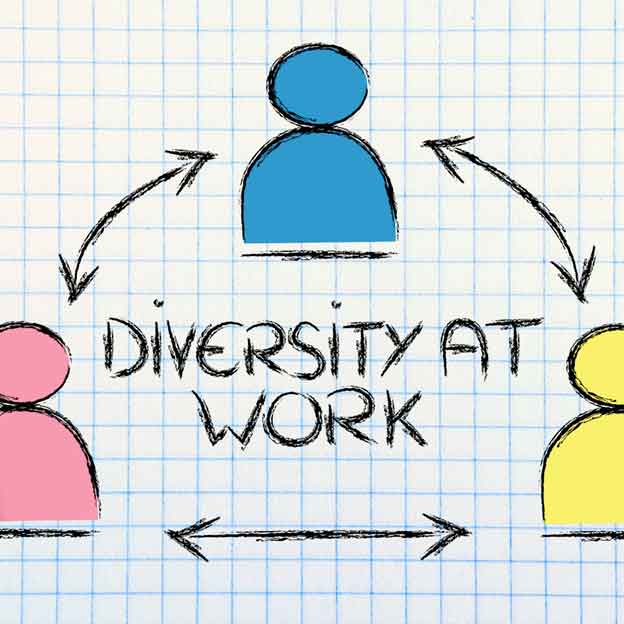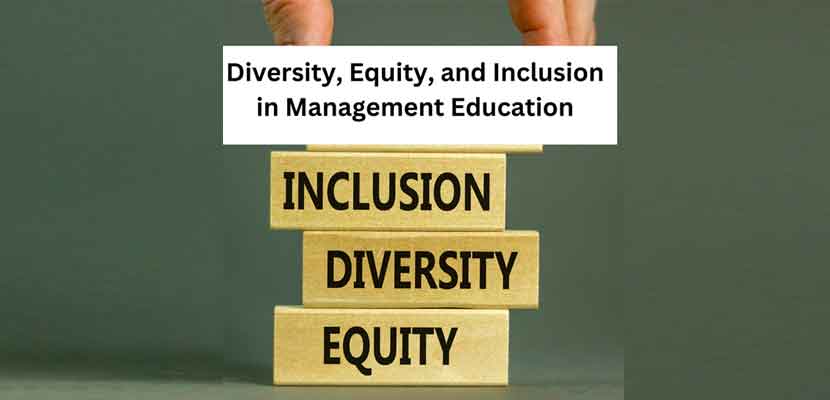In the ever-evolving landscape of modern business In Mumbai, the role of Diversity, Equity, and Inclusion (DEI) has emerged as a cornerstone of success. Nowhere is the integration of DEI principles more critical than in management education. Today’s managers and leaders are facing a multifaceted world, one marked by a diverse workforce, global markets, and complex societal issues, and management education provides more than a theoretical exercise reflecting the realities of the contemporary workplace.
The importance of DEI for aditya college borivali of mba goes beyond being a buzzword; it is a fundamental component of preparing the leaders of tomorrow. From reflecting real-world diversity to fostering inclusive leadership, improving decision-making, and enhancing creativity and innovation, DEI is the key that unlocks scores of advantages for both students and the organizations they will lead.
Furthermore, it addresses the vital role DEI plays in reducing unconscious bias, attracting, and retaining talent, and adapting to a global marketplace. With a changing legal landscape and evolving social responsibility expectations, management programs must equip their students with the knowledge and skills to navigate these complexities. By embracing DEI, educational institutions prepare future managers to lead with integrity and effectiveness, and in doing so, they contribute to the overall success and ethical conduct of organizations.
In this exploration, we will delve into the multifaceted dimensions of DEI in management education, demonstrating that it is not merely an academic concept but an essential practice that ensures the continued relevance and success of future leaders in our diverse, interconnected, and ever-changing world.
Here are some key reasons why DEI is vital in management education:

Reflecting Real-World Diversity: The business world comprises a diverse workforce of race, ethnicity, gender, age, sexual orientation, and more. Management College In Mumbai should mirror this diversity to prepare students for the reality of the workplace.
Fostering Inclusive Leadership: DEI education equips students with the skills needed to be inclusive leaders. Inclusive leaders are better at managing diverse teams, promoting innovation, and creating positive work environments.
Improving Decision-Making: Diverse perspectives lead to better decision-making. Management students exposed to diverse viewpoints and experiences can make more informed and ethical decisions, benefiting the organizations they lead.
Enhancing Creativity and Innovation: Diversity of thought and experience stimulates creativity and innovation. Management education that values DEI inspires students to think more creatively and develop innovative solutions to business challenges.
Mitigating Unconscious Bias: DEI education helps students recognize and mitigate unconscious biases. This awareness is essential for creating fair and inclusive workplaces and making unbiased decisions.
Attracting and Retaining Talent: Organizations prioritizing DEI are more attractive to diverse talent. Management graduates who understand and appreciate DEI are better equipped to help organizations attract, retain, and develop a diverse workforce.
Adapting to a Global Marketplace: Businesses operate globally, and understanding and respecting diverse cultures and markets are essential for success. DEI education prepares future managers to navigate international business environments effectively.
Compliance and Legal Considerations: Laws and regulations related to DEI are evolving. Managers must be aware of and comply with these regulations, and management education should prepare them.
Social Responsibility: Business schools have a responsibility to educate future leaders on the importance of social responsibility. DEI is an integral part of corporate social responsibility, and management education should reflect this connection.
Reputation and Branding: Companies that embrace DEI often have better reputations and are more attractive to consumers. Understanding how DEI impacts an organization’s reputation and branding is vital for future managers.
Best Practices at ASBM :
ASBM Aditya School of Business Management is a prime example of an educational institution that promotes DEI in management education. Some of their best practices include:
Inclusive Curriculum: ASBM incorporates DEI principles into its curriculum, ensuring students’ exposure to real-world scenarios and case studies highlighting the importance of diversity and inclusion.
Diverse Faculty: The institute maintains a diverse faculty, bringing various perspectives into the learning environment.
Diversity of students – ASBM attracts students from diverse backgrounds. Diversity of gender, experience, region, and religion provides a platform for students to appreciate the value of diversity and learn to practice inclusion.
Course on DEI – ASBM offers a 15-hour DEI course for its students to deepen their understanding.

Diversity Initiatives: ASBM actively organizes events, sensitization workshops, and panel discussion that helps to engage in a narrative that promotes DEI. These events provide students with opportunities to reflect upon the importance of DEI.
In conclusion, Diversity, Equity, and Inclusion (DEI) are not mere concepts but powerful drivers of success in modern management education. By weaving DEI principles into the fabric of management programs, educational institutions lay the foundation for students to become adept leaders in a world characterized by diversity, globalization, and interconnectivity.
DEI is more than a checkbox; it is the catalyst for inclusive leadership, informed decision-making, and the ethical conduct of organizations. As businesses expand their global reach, the ability to appreciate and respect diverse cultures and markets is no longer a luxury—it is a prerequisite for survival.
As the renowned management thinker Peter Drucker once said, “Management is doing things right; leadership is doing the right things.” In this context, embracing DEI is undoubtedly doing the right thing. It is not an abstract notion relegated to academia; it is a critical component of effective management in the real world.
Let us recognize that DEI is not just a trend but a permanent shift in the landscape of management education. In weaving the principles of diversity, equity, and inclusion into the very fabric of our learning institutions, we not only equip students for success but also embark on a journey toward a more equitable and Management College In Mumbai.

